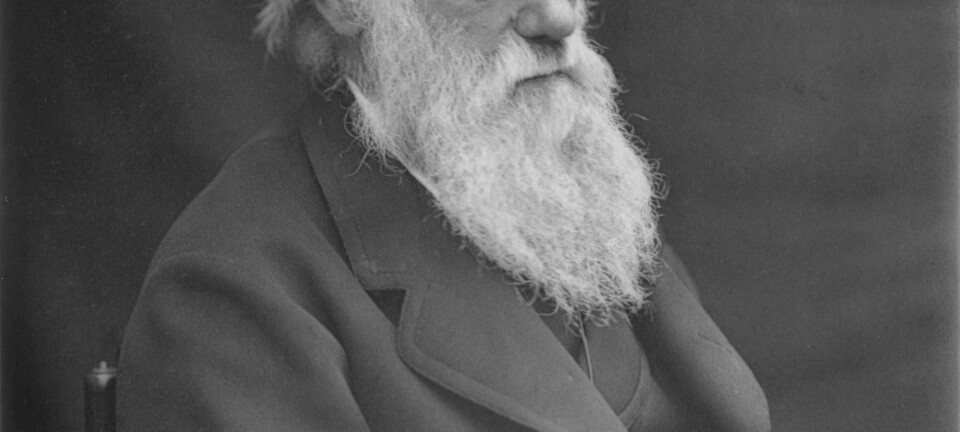An article from University of Oslo

Film music captivates us
Sound and music in films do more than merely enhance our experience of a film's narrative. They can also affect the ways in which we perceive ourselves and how we act.
Nanette Nielsen, a newly appointed researcher at the Department of Musicology, has just completed a research project in which she and her colleagues studied film soundtracks and their potential effect.
The study was conducted using the innovative and prize-winning drama The Memory Dealer by Rik Lander; a theatrical experience that involved the audience - 'players' as they are called in pervasive drama - as active participants in the story. The project was not a traditional film, but rather an interactive drama in which the spectators themselves were actively engaged – mentally, emotionally, and physically.
The players were both observed and interviewed by the researchers, all of whom were employees at the University of Nottingham at the time.
"This was not the first time a pervasive drama was performed, but it was the first time anyone conducted research on how music and sound can contribute to getting us absorbed in this genre. Music and sound turned out to be very important to the individual players’ absorption, and we think that some of our results are transferable to more conventional films", Nielsen says.

The findings of the research project will soon be published in The Journal of Sonic Studies.
The music captivated the players
"It’s like you are you, but you are someone else at the same time". This was the message 172 players heard on their headphones when they took part in the project in 2013 during the British ‘Mayfest’ festival. Receiving instructions via a mobile phone application, they set out on the walk through various neighbourhoods and buildings in the city of Bristol.
The purpose was partly to help, and partly to be the main character in the film's narrative: the young woman, Eve Rust, who opposes a deregulation of the ‘memory market’. In the story, human memories can be stored on mobile phones and shared, and Eve fears the consequences were this market to become commercialized.
The players were unfamiliar with the story at the outset. Through the roles they were assigned, they were able to influence the plot.
"Music and sound turned out to play a fantastic role by enabling the players to become more absorbed in the action; they became more deeply involved in what was going on. They became less self-conscious and more confident in their roles. What kept people captivated was the music: it made them hold on to the right amount of self-reflection and engagement so that they weren't pulled out of the experience", Nielsen says.
Music can shape the stories of our lives
Composers and musicologists agree that the soundtrack in conventional films assists in telling a story. It guides the audience in certain ways, for example emotionally, and it enriches and deepens their experience of the film.
Nielsen thinks that the effect music has is more complex than is regularly held, and she believes that research on new genres – like pervasive drama – may contribute to enhancing our knowledge about it.
"Despite the fact that we had put together a rather conventional soundtrack, we learned from the players that they did not perceive the music as something that supported a linear story. Instead, music played a part in how they understood their own role in the drama", she added.
She is of the opinion that music always plays on something deep within us and is therefore capable of moving us.
"Even when we sit in a room all to ourselves, alone and listening, we still have our thoughts and our imagination. Music can work in powerful ways to evoke memories and ideas and thereby engage our thoughts and feelings. Music can quite simply contribute towards shaping the stories of our lives".
Broadens the perspective to all film music
Nanette Nielsen, whose academic background is musicology and philosophy, has recently co-authored the book Music and Ethics with Marcel Cobussen. Within philosophy she is particularly interested in the field of phenomenology - that is research on the first person perspective - and she believes that the project on The Memory Dealer has brought the fields of music and phenomenology closer to one another.
"The players moved away from the spectator perspective and became first-perspective holders in the experience. The music helped to shape this experience", she says.
"It is difficult to say what it is about the soundtrack that does this. Many of those interviewed said that the music and sound created a certain ambiance or atmosphere, also physically; it made them move more quickly, for example. The players sensed the ways in which the music supported their understanding of who they were, as well as who they were in the role they had undertaken to play".
By testing how music functions in a new sphere one is able to acquire valuable knowledge that is transferable to studies of conventional film soundtracks, Nanette Nielsen argues.
"If we take seriously the self-understanding that we can achieve through sound and music, we may also start to look at our involvement in ordinary films in a new way. Maybe sound and music affect our behaviour and our moral attitudes, both while we are watching the film and also afterwards. It appears that our sonic experience can help us to reflect on and influence our actions in the same manner that many other experiences can".

































